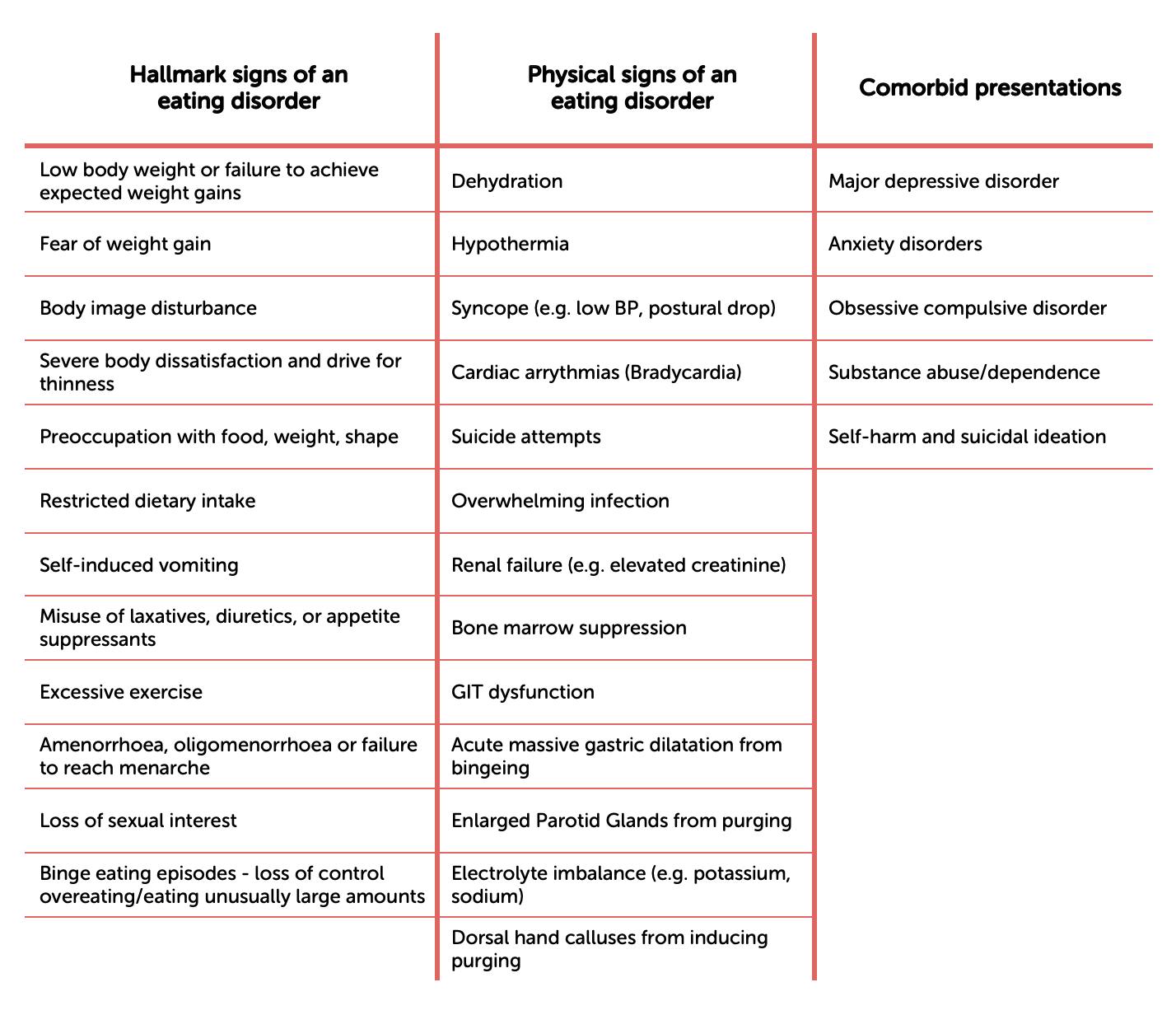InsideOut eLearning
Learn more about eating disorders with our suite of online courses for health professionals.
eLearning
Early Identification
Eating disorders routinely go undetected in primary care settings
This is largely because people rarely present to their GPs for the eating disorder itself(1). Instead, they present with a range of other physical and psychological symptoms directly related to the eating disorder. This may be due to ambivalence, denial, secrecy, shame, or lack of insight about their behaviours.
Consider the possibility of an eating disorder when people present with related symptoms:
- Menstrual or fertility difficulties
- Gastrointestinal problems (i.e. irritable bowel; allergies or food intolerances that have been self-diagnosed)
- Concerns about weight, body and shape; or a desire to lose weight
- Non-specific complaints such as tiredness or poor concentration
- Physical signs of starvation or repeated vomiting
- Children with poor growth
- Young people who present with any mental health symptomology (i.e. perfectionism)
Eating disorder treatment is more effective when it is delivered early in the illness course (2,3).
If you suspect that a person has eating disorder symptoms, either through a screening tool or by recognising the signs, it is vital that you conduct a comprehensive eating disorder assessment.

I went to my doctor a fair few times before I got diagnosed with bulimia nervosa. I knew that my behaviours were dangerous, but I was too embarrassed to talk about it and the GP never really asked.Aileen, lived experience
GP Dr Karen Spielman discusses the importance role of GPs in identifying and treating eating disorders.
Eating Disorders: Mental Health First Aid
Guidelines to help members of the public provide first aid to someone who may have an eating disorder
Early detection of eating disorders in general practice
Journal of RACGP: Given the prognostic significance of early detection of, and intervention for, such conditions, it is important that GPs feel confident.